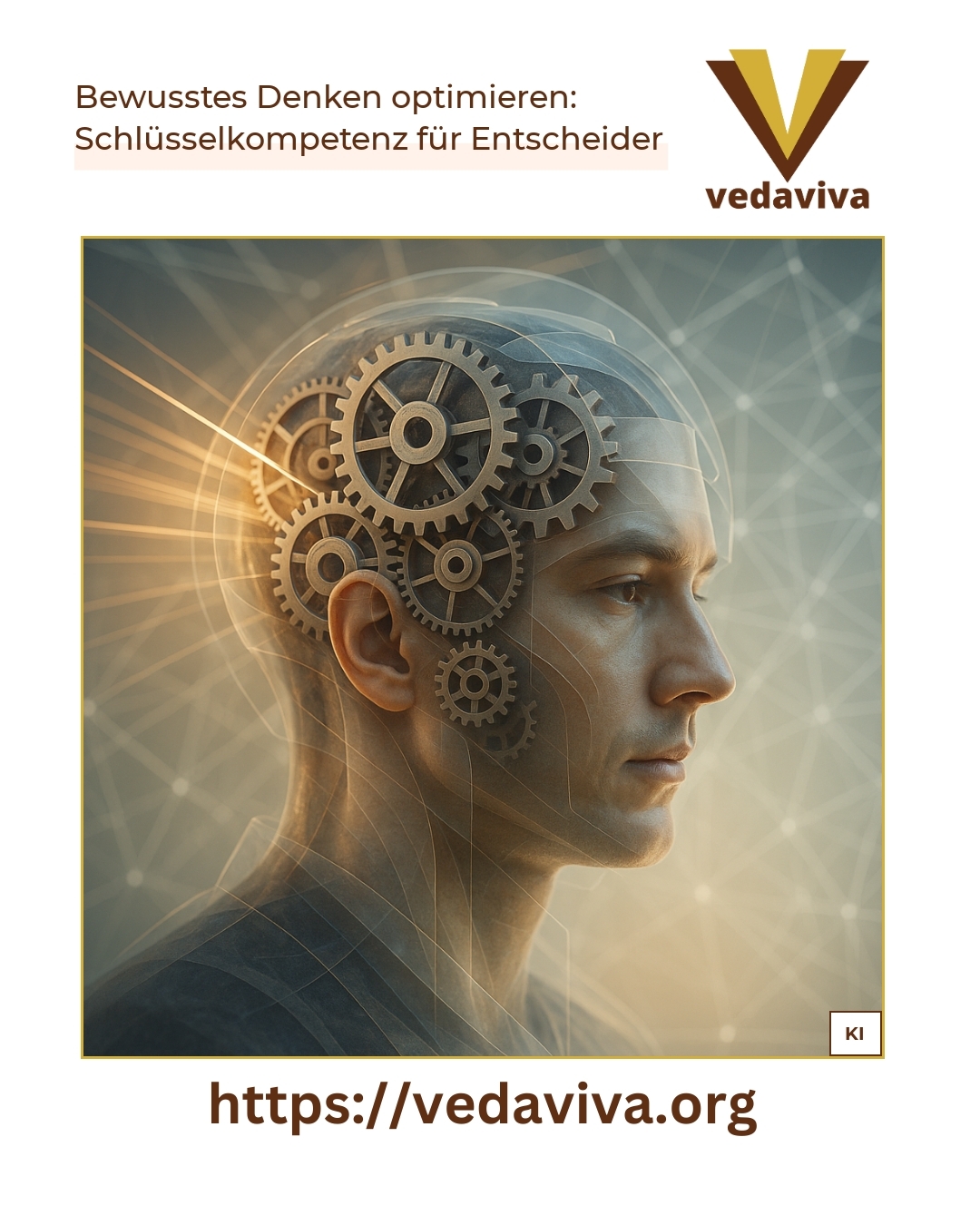Optimising conscious thinking as a key competence for decision-making processes
Optimising conscious thinking is an important skill that can significantly support decision-makers in companies and organisations. It is about actively controlling the thought process and consciously incorporating different perspectives. This enables complex challenges to be analysed more clearly and decisions to be made on a more informed basis. More and more companies are therefore investing specifically in measures that optimise and structure conscious thinking in order to be more successful in dynamic markets.
How optimising conscious thinking strengthens the ability to make decisions
If you want to optimise conscious thinking, it helps to define clear goals and systematically record the facts. Instead of reacting impulsively, the focus is placed on a structured evaluation. This allows you to set priorities and weigh up options for action. This creates clarity and reduces the uncertainties that often arise in stressful situations.
A practical example: A project team was under enormous time pressure and used conscious thinking techniques to reduce emotional tensions. A clear focus on solution steps and creative brainstorming sessions resulted in a realistic schedule that relieved the team and at the same time ensured the quality of the results.
BEST PRACTICE at ABC (name changed due to NDA contract) One team used conscious thinking to create a well thought-out schedule despite tight deadlines. The combination of objective analyses and creative ideas supported project management. As a result, decisions were made more consciously and stress in the team was reduced.
Methods to strengthen and optimise conscious thinking
In order to optimise conscious thinking, companies use methods such as structured workshops that separate emotions from facts. Such a process usually begins with all participants revealing their views and feelings. This clears the mind for analytical thinking and creative solutions.
Micro-learning units also play an important role. Complex topics are divided into manageable sections, which avoids excessive demands and promotes concentration. Regular practice of logical thinking, for example through puzzles or simulation games, can also optimise conscious thinking. Targeted error analysis also helps to learn from experience and continuously improve thought processes. A balanced diet and good sleep hygiene are also beneficial as they support cognitive performance.
BEST PRACTICE at DEF (name changed due to NDA contract) One company implemented a combination of micro-learning phases and regular reflection sessions. Employees often report that this structure helps them to approach complex tasks with greater awareness and focus. This leads to fewer mistakes and better results on a day-to-day basis.
Optimise conscious thinking through critical questioning and data analysis
Optimising conscious thinking also means questioning critically. Those who base their decisions on sound data and analyse correlations can better understand changes and their causes. This ability is particularly useful in companies that are data-driven and have to regularly adapt their strategies.
It is also important to know how to draw the right conclusions from data in order to plan future steps in a targeted manner. This shows that optimising conscious thinking involves not only reflecting on past decisions, but also actively managing future processes.
BEST PRACTICE at GHI (name changed due to NDA contract) The team integrated critical thinking as an integral part of data analysis. By continuously reviewing and questioning key figures, new impetus for optimising processes was regularly generated. Conscious reflection helped to utilise resources in a more targeted manner and strengthen competitiveness.
Implementation of conscious thinking in everyday corporate life
Conscious thinking is best optimised when it is systematically integrated into everyday working life. Companies can introduce fixed routines for this, such as short daily reflection phases or weekly planning meetings, in which thought processes and the basis for decision-making are specifically scrutinised. This ensures that the skill is practised continuously and is not only applied occasionally.
Digital tools, training and structured communication formats can also strengthen conscious thinking. This creates a culture in which reflective thinking becomes a matter of course for all teams. This promotes innovation and contributes to resilient development.
My analysis
Optimising conscious thinking is a skill that is essential for decision-makers and teams, especially in an increasingly complex working environment. This ability can be strengthened through structured methods, critical questioning and regular training. Many companies combine analytical and creative approaches to enable well-founded and flexible decisions. In this way, conscious thinking becomes a valuable building block in management and daily collaboration.
Further links from the text above:
[1] Strengthen conscious thinking: How to make better decisions - SAULDIE
[4] Training logical thinking - Effective methods
[5] Critical thinking to support SEO optimisation
Legal notice: Coaching does not replace therapy. It serves personal development. I do not diagnose or promise a cure. My offer is for personal development and is not a substitute for medical, psychotherapeutic or curative treatment. Please consult a medically qualified specialist if you have any health complaints. The experiences described here are based on individual feedback from my clients. They are not a guarantee of success and do not replace medical or therapeutic counselling. For more information and if you have any questions, please contact Contact us on the topic or read further blog posts on the Topic here.













